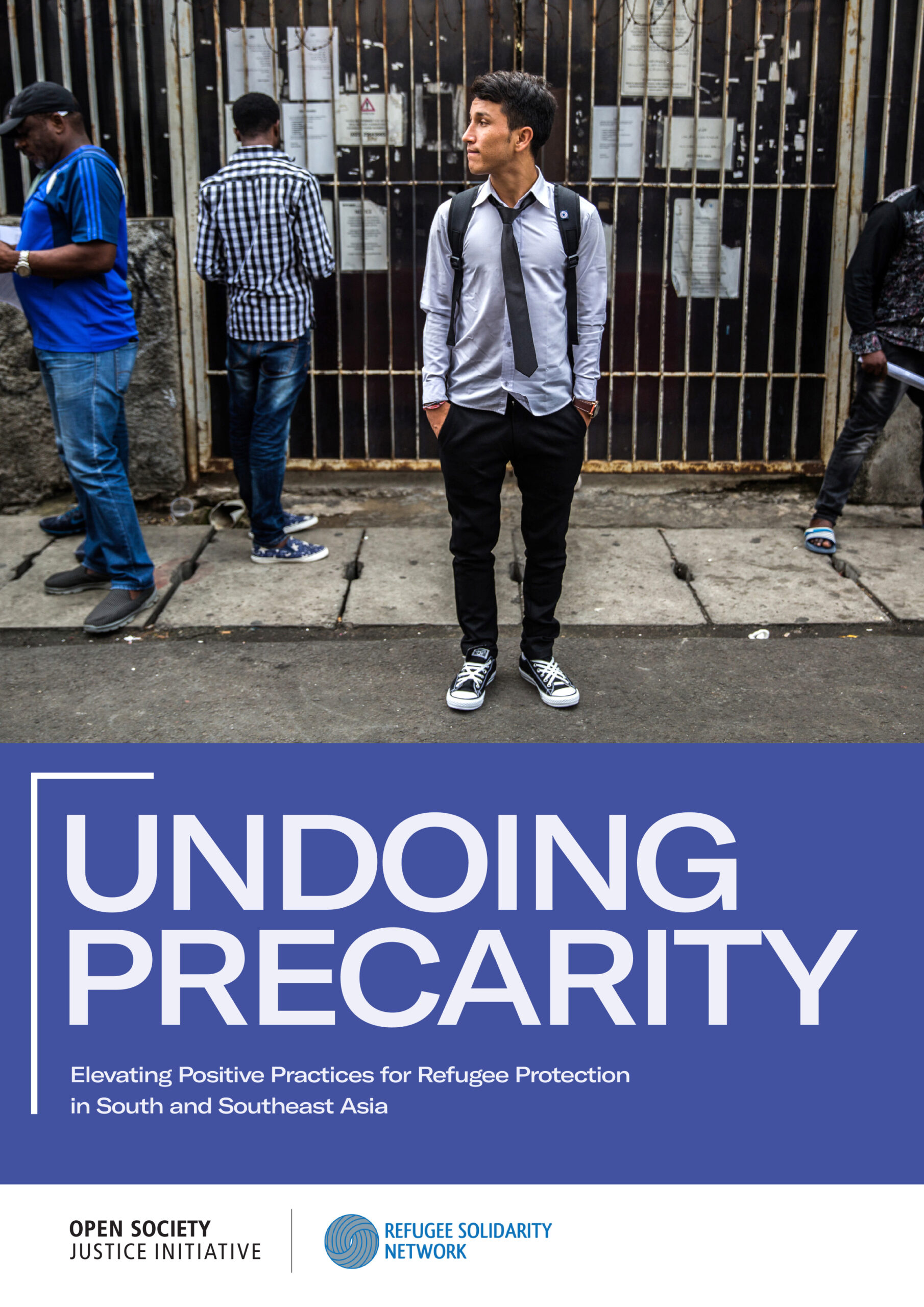Undoing Precarity: Elevating Positive Practices for Refugee Protection in South and South East Asia

The Global South–and in particular South and Southeast Asian states–shoulder major responsibility in hosting displaced communities–distinctly Rohingya and Afghan refugee populations. Notably, most of these states are not signatories to the 1951 Refugee Convention and many do not have domestic legislative frameworks governing matters of refugee reception, status determination, nor protection. This report offers an abbreviated regional and Global South-oriented analysis of protections and positive practices extended towards refugee and asylum-seeking populations in Bangladesh, India, Malaysia, Pakistan, and Thailand, thereby demonstrating some of the ways in which protection-oriented practices are employed by this cohort of non-signatory states.
The ‘Undoing Precarity’ report was researched and written as part of a multi-year research consultancy between RSN and the Open Society Foundations (OSF). Additional support was provided by the Global Strategic Litigation Council for Refugee Rights (GSLC), along with other numerous regional experts. The report seeks to support thinking around resorting to law reform, and using and re-imagining existing legal systems in the Global South to advance rights and secure legal remedies for refugees, displaced persons, and individuals with insecure legal status. As such, the report’s primary audience includes frontline legal practitioners, activists, policymakers, and other stakeholders throughout South and Southeast Asia.